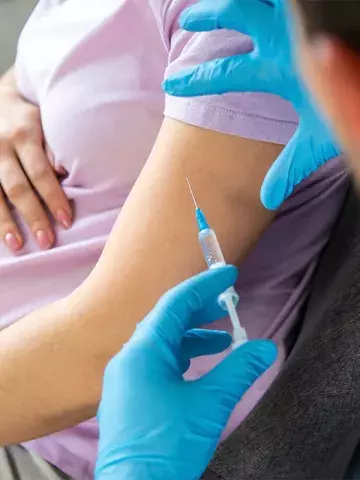Prenatal RSV vaccination safety backed by study
By Melanie Hinze
New data add to existing evidence in support of the safety of prenatal respiratory syncytial virus prefusion F (RSVpreF) protein subunit vaccination.
Published in JAMA Network Open, the retrospective observational cohort analysis was conducted at two New York City hospitals involving 2973 individuals (median age, 34.9 years) who gave birth to singleton gestations at 32 weeks’ gestation or later from September 2023 to January 2024. The study was designed to investigate whether vaccination increased the risk of preterm birth.
A total of 1026 (34.5%) individuals received prenatal RSVpreF vaccination. Among the vaccinated patients, 5.9% experienced preterm birth compared with 6.7% of those who did not receive the RSVpreF vaccination. After adjusting for potential confounders, prenatal vaccination was not shown to be associated with an increased risk of preterm birth.
There were also no significant differences in pregnancy or neonatal outcomes between the two groups. However, the authors suggested continued monitoring of hypertensive disorders of pregnancy (HDP) among vaccinated patients as there was a slight increased risk of HDP in these patients in time dependent models.
Associate Professor Paul Griffin, Director of Infectious Diseases at Mater Health Services in Brisbane and Associate Professor of Medicine at the University of Queensland Medical School, Brisbane, said that maternal vaccination continued to be a vitally important strategy.
‘It’s been tried and tested with whooping cough, influenza and to an extent with COVID as well,’ he said.
‘One of the main benefits is you get a four for one vaccination,’ he said.
‘So obviously you keep the mother well during the pregnancy and you also protect the mother around the time the infant is youngest and most vulnerable,’ he said. ‘Then you also provide protection directly to the baby after birth when their immune system is under developed and they’re not able to be vaccinated or protected themselves, and it also provides some additional protection through breastfeeding as well.’
Professor Griffin told Medicine Today that RSV was one of the most common causes of viral infections in young babies and it could have devastating consequences.
He acknowledged that it was becoming a bit more of a crowded space with the number of vaccines now recommended in pregnancy.
‘However, it’s really important to educate patients about the importance of getting each vaccine at the times they are recommended so that we can optimise protection for both mother and baby,’ he said.
JAMA Netw Open 2024; 7: e2419268. doi:10.1001/ jamanetworkopen.2024.19268.


